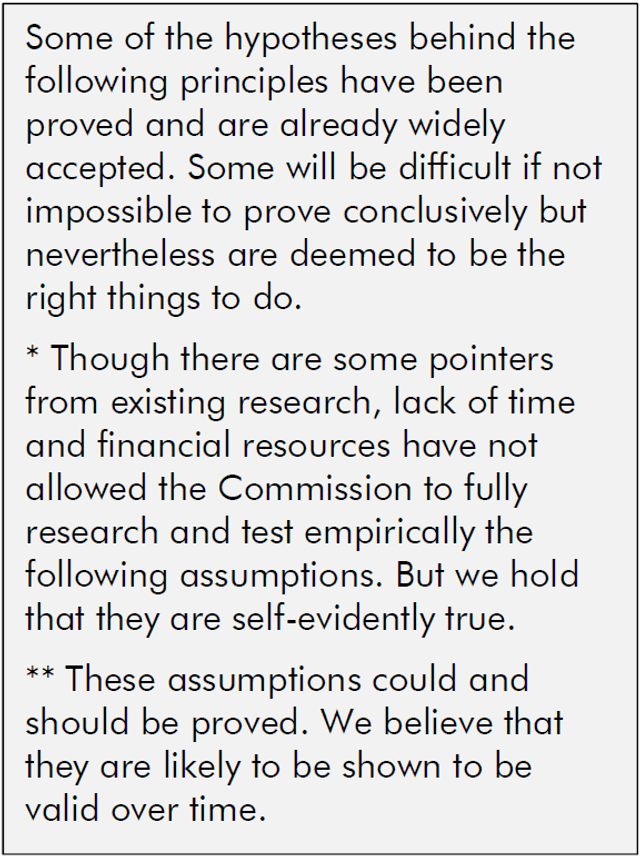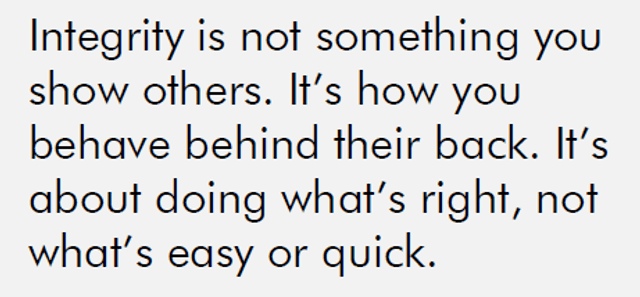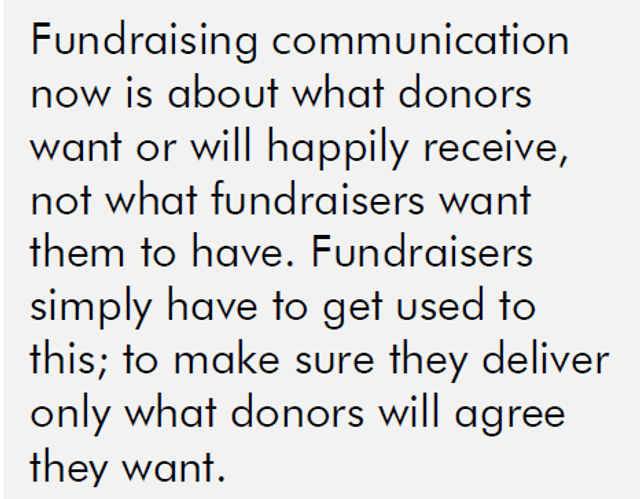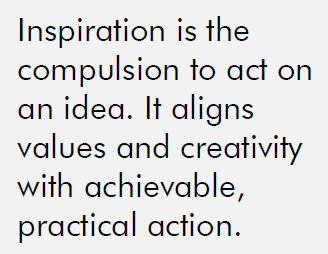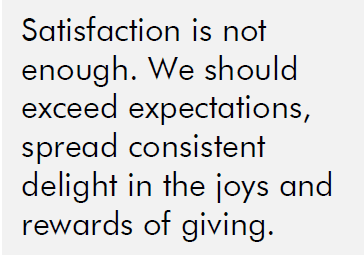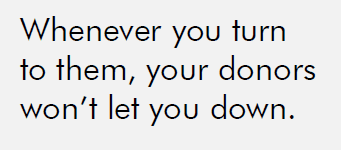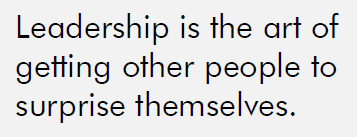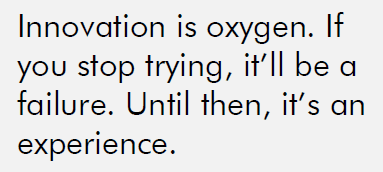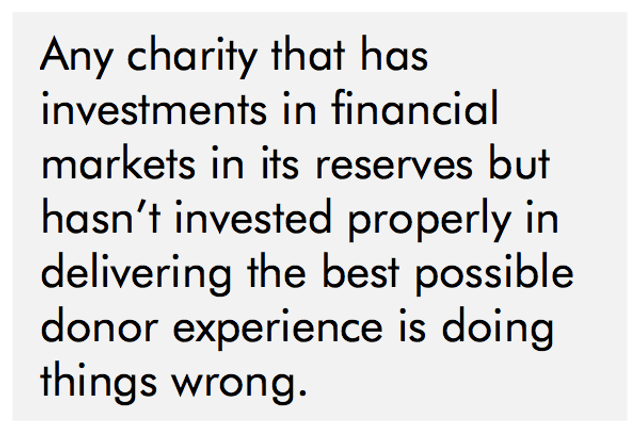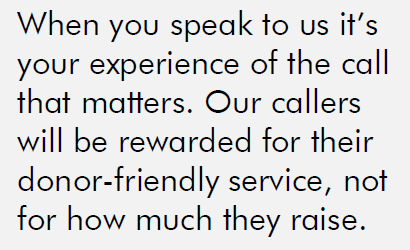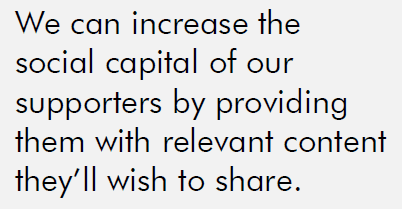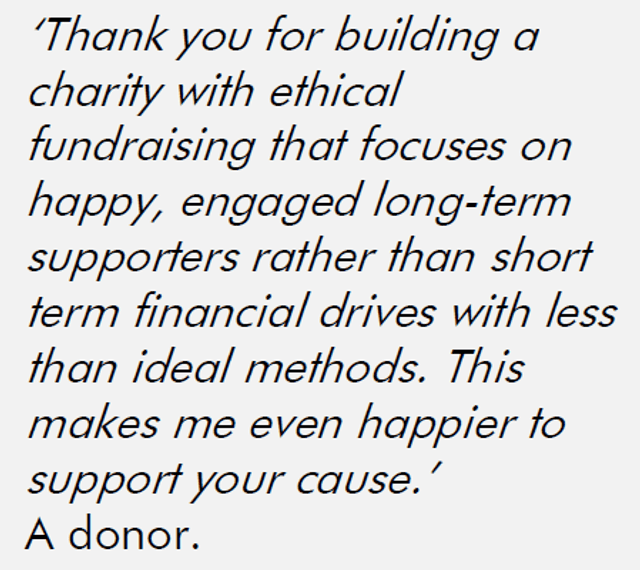The 6Ps: a blueprint for transforming fundraising. For good.
This document is important. When you print, distribute and debate its content within your organisation you will be playing your part in spreading the findings of the Commission on the Donor Experience, and making them stick. Read here then scroll to the end to download.
- Written by
- The Commission on the Donor Experience
- Added
- June 18, 2017
The six steps to change outlined here provide windows onto a vast body of work compiled through 2016 and early 2017 by upwards of a thousand individual volunteers for the Commission on the Donor Experience (CDE), from all corners of the voluntary sector, all with the aim of helping fundraisers put their supporters, not financial targets, at the heart of their fundraising strategies. The 6Ps are,
• Purpose.
• Permanent change.
• Principles.
• Pillars of change.
• Promise to donors.
• Practical actions.
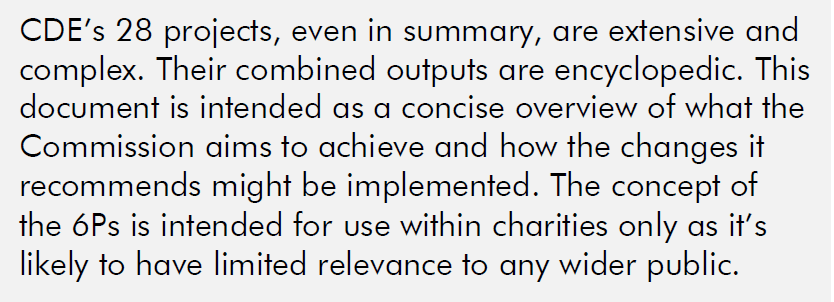
Purpose: why change is overdue
Day in, day out, Britain’s charities deliver life-changing, life-affirming, life-saving humanitarian, social, cultural and environmental work essential to the effective functioning of our society. For this they depend upon fundraising from a supportive, committed, generous public. That support, always consistently dependable, has for some been shaken, of late.
At its heart the Commission’s philosophy is very simple. We believe fundraising charities will earn and enjoy the public trust, confidence and respect that’s so vital for sustained giving only if they can firmly fix as their topmost priority the interests, convenience and positive experience of their supporters. If fundraising charities are to thrive they should transform, permanently, into the most supporter-focused business area of all. Signs that some charities have put meeting their short-term financial objectives ahead of concern for their donors have recently caused considerable negative publicity, damage and erosion of public trust.
In a genuine attempt to create more change in the world for their beneficiaries some charities have made the wrong choices. Over recent years the UK’s voluntary sector has seen and suffered the consequences. A prevailing preoccupation with ever-increasing financial targets or a lack of closeness to the issues has led fundraisers, CEOs and trustee boards in many charities to focus on raising money in ways that are often unwelcome to donors and counter-productive to building the kind of relationships and programmes upon which long-term fundraising success depends. Of course targets are not wrong per se, but in their pursuit of ever-more and larger donations to reach ever-growing financial goals, many fundraising leaders have lost sight of what they could and should be doing to deliver, consistently, an exemplary experience for their donors and other supporters.
So deeply ingrained is the short-term, target-driven culture across fundraising in the UK that significant numbers of practicing fundraisers, their leaders and their agents still struggle to genuinely understand this. Our purpose therefore is nothing less than a culture change among fundraisers and within the organisations that employ them, particularly their leadership and senior management teams.
Given the above, we are proud that fundraisers individually and collectively are driven by such an evident and strong desire to remedy any shortcomings. This commitment can be seen by the more than 1,000 fundraisers and other professionals from all across the voluntary sector who have supported and engaged with the work of the Commission. While many areas need to improve, good practices are widespread. Backed by their trustee boards and senior leadership, we are confident that fundraisers across the sector can and will rise to this opportunity to change, to deliver consistently an exemplary experience for donors.
Permanent change: a new, bright future for the donor/cause relationship
This is not about short term, cosmetic solutions. Instead the Commission on the Donor Experience is encouraging and preparing for a lasting culture change that will go deep into the roots and hearts of our organisations and their people, challenging conventional practices, attitudes and thinking to change fundraising practices permanently for the better. The changes we advocate will not just benefit donors directly but will also be better for charity staff and for the many millions who directly benefit when donors and fundraisers work at optimum together, for the good of all.
How change will happen
Change has to come from within. Fundraisers and their leaders have to make this happen, themselves. The Commission will provide detailed, supportive guidance but leaders have to lead by example, to be explicit about the changes they expect to see from colleagues all across the organisation. For the required change to come and to last, we are encouraging all UK charities to sign up to implementing this change.
People, their attitudes and how we inspire and support them are the key components of this change. Fundraising organisations from now on will need to be much more particular about whom they recruit and how they train and equip them to deliver an exemplary, inspirational, rewarding donor experience. Fundraisers in future won’t just need to look and act different, they’ll need to think, feel and be different and to be consistent in everything they write, say and do. Charity supporters everywhere will come to expect to see, feel and appreciate that difference, day in, day out.
Therefore we believe a profound, fundamental change is needed that, if it’s to last, has to go deeply into the DNA of our sector so it can be transmitted, top to bottom, through every organisation that employs charity fundraisers. The donating public too has shown clearly that it wants change. We have listened and have tried to see fundraising through donors’ eyes. What follows is the result.
Seven fundamental principles that underpin the change to come
1. Anyone who gets a great experience when supporting a charity will, over their lifetime, give significantly more than someone who doesn’t. So, we believe, the donor-centred approach will lead not to reduced resources but to increased net income for good causes, at least in the medium to long-term*. If giving is seen to be a rewarding, enjoyable experience people will do more of it. If it isn’t, people will soon stop.
2. Charities will be stronger if a donor-based approach becomes their norm. Public trust and confidence are prerequisites of sustainable fundraising and charities enjoy high levels of it, mainly because of the good work they do. If donors are consistently listened to and given genuine choices and effective control of their relationships with the charities they support, so trust and confidence will increase too.
3. High standards and ideals must govern fundraising, not organisational or individual self-interest. Integrity and consideration are as important for fundraisers as financial targets and essential for reaching those targets. Fundraisers should always do the right thing by donors, treating them always with respect in the language they use, in how they communicate inspiration and in the fundraising practices they pursue. Pressure, persistence and undue persuasion are not the right approaches for fundraisers. Rather they should treat donors as their cause’s friends, not merely a route to more resources. Friends give as well as take and don’t always ask for money. Rather than persuasive asking, effective fundraising is more about inspiration and shared conviction*.
4. While fundraisers should exemplify both passionate commitment to their cause and appropriate professional standards, passion is usually more valued by donors than technique or slick professionalism. Though they greatly value competence and commitment, many donors are suspicious of business practices and overt commercialism from the charities they support. Many would prefer to see a different, more distinctive, more obviously values-led approach. Donors generally will prize passionate belief in the cause ahead of technical abilities, particularly in sales and marketing, which donors often see as inappropriate*.
5. Fundraising should be measured long term, not just on immediate returns. Fundraisers should be judged at least as much by longer-term, more donor-friendly criteria rather than just by income raised now. New criteria should include retention, satisfaction, non-financial engagement, future giving intentions, loyalty, commitment and lifetime value.
6. Not all fundraising is good fundraising. If any method of fundraising is shown to be unacceptable to the public, fundraisers should commit to changing it so that they do provide, consistently, a good donor experience. If any public fundraising method cannot be made demonstrably acceptable to the public, it should stop.
7. Fundraising is an investment, not a cost. To succeed and be effective in delivering the best practical donor experience, donor-based fundraising strategies and staff require sufficient, sustained and frequently significant investment. Charities are obliged to keep often-substantial amounts of money in reserve to meet forward commitments, funds they prudently invest to get maximum return for minimum risk. Over the years, many charities have shown that investment in fundraising can be many times more secure, reliable and productive than almost any other available investment**, so investment in fundraising should be encouraged. Lack of appropriate investment in the donor experience and donor relationship development should be seen as irresponsible if available funds are deployed elsewhere in short–term, less productive and less crucial activities.
The pillars of fundraising change that follow are all vital if change is to come. Each is informed by the 28 CDE projects, with input also from other events and initiatives launched or encouraged by the Commission since it was founded in the summer of 2015. Wherever possible these pillars will be measurable. Taken together, the 12 pillars will support and make possible the donor-centred approach that will sustain our great causes, and upon which all fundraisers, volunteers and paid, will be judged.
The 12 pillars that, collectively, will support fundraising change.
1. Integrity and consideration will underpin each and every contact with a donor. Fundraisers will always do the right thing by donors, always treating them with respect and consideration in everything from the language fundraisers use to the style and content of each contact.
2. Donors will be in the driving seat. Giving is voluntary. Every donor will be in consistent, effective control of his or her personal, individual relationship with the causes he or she supports.

3. The right people in place. Charities will recruit the best, most suitable, most committed people for this very special job and develop them appropriately across all parts of the let’s change the world-for-the-better sector. The top five attributes of donor-centred fundraisers are people skills, passionately cause-driven, adaptability and agility, listening and responding to donors’ needs and genuine, authentic integrity.
4. Every communication with donors should leave them feeling better about their support after the communication than before it. So, inspiration rather than persuasion. Plus, showing donors the difference they make. Fundraisers will perfect their storytelling skills in a new approach to impact measurement, accountability and reporting. Communication will be of the highest standard built around the principle of the five Fs – fundraisers will become famous for providing frequent, fast, fabulous feedback. New standards will be applied for direct mail, telephone, digital, face-to-face, publications, broadcast, social and other media.
5. Wonderful to deal with. A new approach to donor recognition and welcome is recommended, plus freshly reinvigorated, measurable standards of consistently excellent feedback, transparency, customer support and donor-friendly service.
6. Learning, learning, learning. Through effective induction and measurable initiatives such as those described in the Commission’s 28 projects, fundraisers will learn how to be donor-focused in fundraising, how to test and innovate, offer preferences and choices, plan donor journeys and deliver satisfaction consistently, so as to improve the experience of all donors.
7. Leading from the front. Trustee boards and senior management teams will engage properly and practically to fulfil their duties to donors with pride and pleasure. Fundraising leaders will become familiar with, confident in and be judged by the characteristics of donor-focused leadership as defined in the 28 projects. They have been shown to produce truly great fundraisers and shape the success of great fundraising organisations.
8. New views of risk, investment and return. Fresh, informed attitudes to return on investment for charities mean no more timid under-achieving from what was once the worst-resourced and most risk-averse sector.
9. Aiming higher. Increased aspirations of excellence. Charities will become renowned for boldly and enthusiastically doing things right. No more aiming low or settling for sub-standard. Every donor will come to expect the same care and service levels that should be (but too often isn’t) routinely enjoyed by legacy pledgers, long-term supporters and major donors.
10. Improved public passion for the changes fundraising leads to, based on better storytelling, understanding and clear explanation of the daily realities of charities. The public’s view of charity expenditure on administration is just one of a range of issues that need better explanation. Charities have allowed the public to believe that any such expenditure is a bad thing, that lower expenditure on administration must by definition be good. Yet donors should insist that charities are properly and appropriately administered, otherwise how can anyone be confident that any of their gift will get through to the cause they wish to support? With appropriate, carefully judged investment in the efficient and effective running of the organisation, donors’ funds won’t risk being wasted.
11. Eagerly innovating to change the face of charity. Social marketing and networking plus innovative new platforms and changing technologies all can be combined now to offer donors new ways of connecting, networking, sharing and spreading inspirational campaigns and messages. Pressure and undue persuasion will be unacceptable. Traditional charity marketing will be replaced by new, authentic, donor-centred ways of communicating.
12. A new promise to donors. Donors will support solutions that are consistent with what they believe. For everyone who wants to make a difference in this troubled world, the most delightful, fulfilling action will be to support a donor-centred charity. So, the Commission has defined practical actions where fundraisers can and should give their audiences a better experience of how they make a rewarding difference when they become a donor.
Promise: a proud new commitment to everyone who makes a difference by being a donor.
When supporters can easily see the impact from and the benefits of their support they’ll want to do more of it and will tell their friends. The scale and range of changed practices outlined in the following practical actions give the Commission confidence to believe that all fundraisers in future will be able to make a detailed, inspirational compact with their donors and stick to it, so that supporters can better understand and appreciate their role in supporting the causes that matter to them. All charities should make such a promise, so that their supporters know what they can expect from the causes they support and that the solutions they provide together will be entirely consistent with what supporters believe in and want.
There is no one promise or set of promises to donors. Organisations will find and adapt the content for their promise themselves, to suit their own circumstances and the needs of their donors. Some suggestions for that promise include
- We are proud of our supporters and treasure their role in making possible everything our charity achieves. Our supporters – donors who give money and volunteers who give their time and talent – will always be at the heart of our thinking, top of our concerns.
- Each supporter will always be in control of his or her individual relationship with our cause.
- We see our supporters as partners in making our mission achievable, so as much as practical we’ll seek to directly link our supporters with our work.
- All supporters will be treated equally at all times with care, consideration, integrity and respect. There will be no coercion, pressure or undue persuasion and the donor’s right to say no will be cheerfully and immediately accepted.
- Whenever practical we will be available to our donors, eager to listen to what they have to say and to take action appropriately. Our supporters will deal with named people they can put a face to and who are easy to contact in ways and at times designed to suit our donors.
- Our charity will report on the differences donors make with honesty, clarity, precision and impressive promptness. Our mantra will be ‘the truth, told well’ and we’ll aim to be famous for fast, frequent, fabulous feedback (the 5Fs).
- Openness and transparency will be watchwords that guide our accountability to all supporters.
- Supporters can expect passionate commitment to our cause to characterise their every contact with us.
We will provide consistently inspirational and effective communications to spread the joy and sense of fulfilment and achievement that can come from giving to a great cause. And we’ll offer donors the chance to choose what they hear about from us, how often and when.
As these changes take root and spread, charity supporters, charity staff and the indispensable causes they make possible together will be stronger, benefitting all in our society as well as all the donors whose generosity makes it all possible.
Practical actions: 526 tips and advice on ways to improve the donor experience, plus more than 250 case histories to learn from, copy and adapt.
The Commission on the Donor Experience is leading change now with hundreds of individual recommendations for helpful approaches, techniques, advices and new initiatives that together will add up to deep, lasting change in how charities contact their donors and potential donors and in what donors can expect to get from the experience.
Each of the Commission’s 28 projects has produced detailed principles that should govern their specific area, plus a cornucopia of practical hints, tips and recommended actions that will quickly add up to a better experience for all donors. In addition, fundraisers can draw upon hundreds of specially-compiled instructive case histories of donor-centred fundraising that works, from charities of all kinds and sizes. All 28 projects are linked here for easy access so you can download the summaries singly or collectively, or the full content individually. The directory of case histories is also available for easy downloading.
• 1: language • 2: vulnerability • 3: satisfaction and commitment • 4: thank you and welcome • 5: The supporter’s journey • 6: the use and misuse of emotion • 7: companies • 8: trusts and foundations • 9: major donors • 10: legacies • 11: communication with individual donors • 11a: mass media • 11b: direct mail • 11c: community • 11e: telephone • 11f: face-to-face • 11g: off-the-page • 12: inspirational creativity • 13: giving choices and managing preferences • 14: the right people • 15: trustee boards and SMTs • 16: service culture •17: leadership •18: supporters as champions of your mission •19: impact and effectiveness •20: fundraising investment • 21: working with suppliers •22: the public face of charities • 23: small and large charities• 24 the case histories.
Inevitably there are aspects of the donor experience where, for reasons of time and lack of resources, the Commission has not been able to comment. Also, in parts of the 28 projects the Commission has barely been able to do more than scratch the surface, plus there are many areas where there’s still ample opportunity to expand and improve. From the end of April 2017 the 28 projects listed above will be published on-line so they can be available first through a ‘beta’ contributory process then fully to everyone in July of 2017. Yet the Commission accepts that even as these recommendations are understood and implemented fresh new ideas and aspects of best practice will emerge. That’s fine. It’s important to appreciate that all of the project areas are inevitably ongoing works in progress. Supporters of the Commission on the Donor Experience and its successors will continue to distil, add to and expand the body of knowledge in this important field. Though you can start implementing these changes immediately, this work is still evolving, still in progress and you can find out more about its evolution and how you can play your part, here. Please do get involved and play your part in shaping the development of donor-centred fundraising in coming years. Literally, the future of voluntary action is in your hands.
In September, 2015, the Commission on the Donor Experience explained its purpose in its founding document.

CDE’s volunteers have delivered on that undertaking and the Commission or its successors will add to it too, over coming months. With a depth and breadth never before contemplated, vast areas of best practice have now been defined through a uniquely collaborative sector-wide process which has led to detailed examples that should become the basis of our shared common understanding of what is, and what isn’t, a reinvigorated standard of best practice. Together these embody a new, donor-based approach to how charities should and will raise money. We commend these initiatives to you and ask for your support in helping them to spread. If fundraising in Britain is to succeed and our priceless, exemplary voluntary sector is to flourish as a result, we need to get this right, right now.
The finished full reports are available here now.



